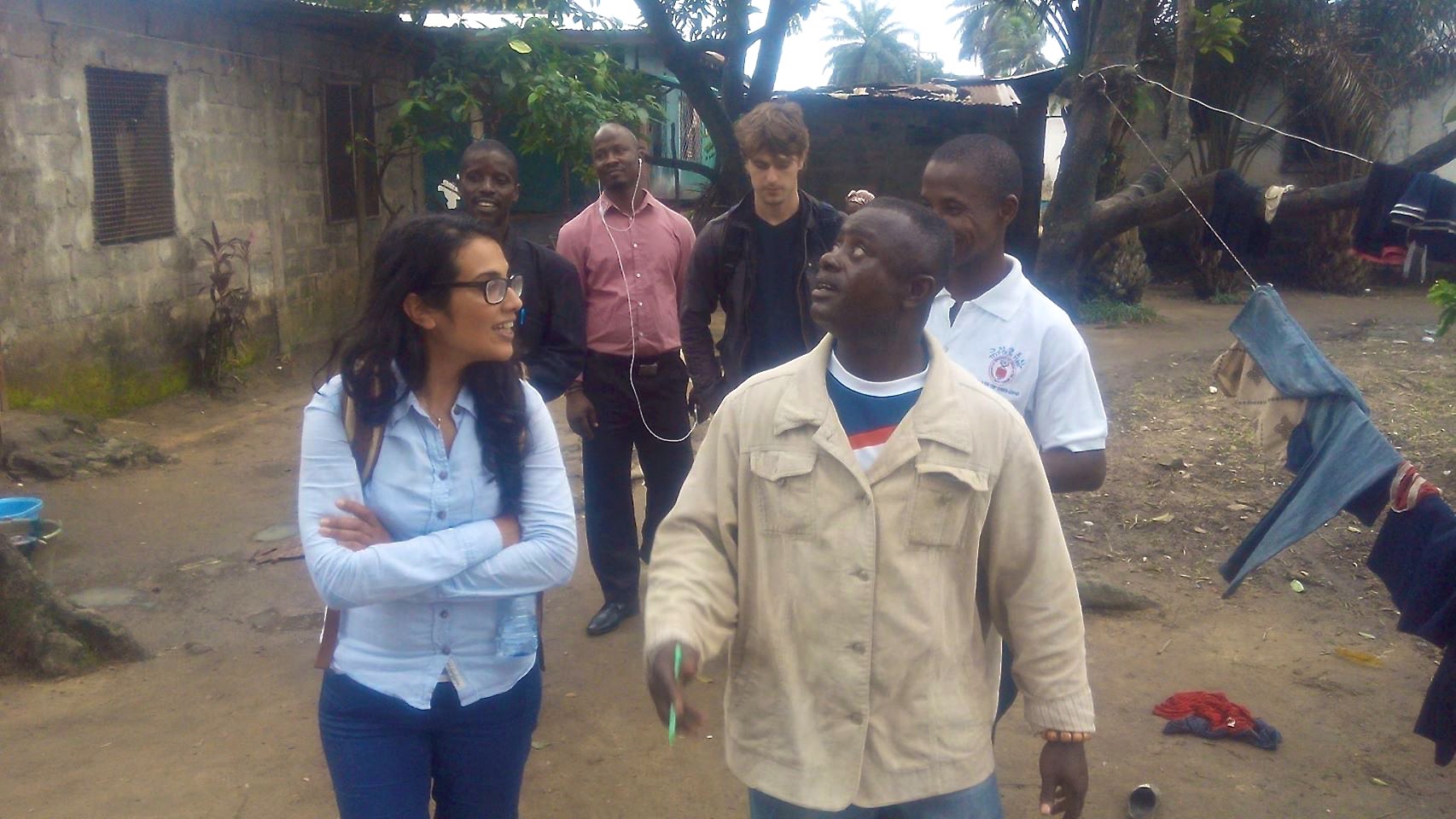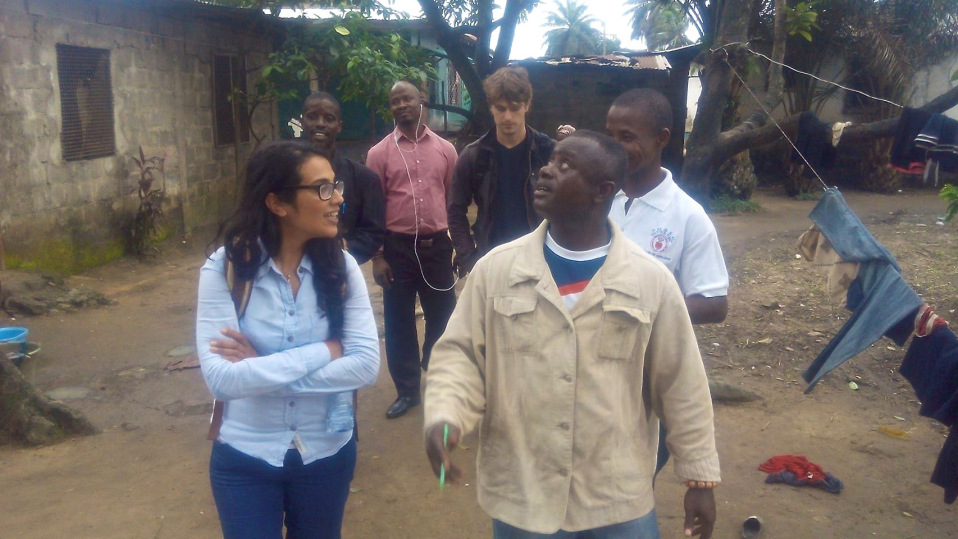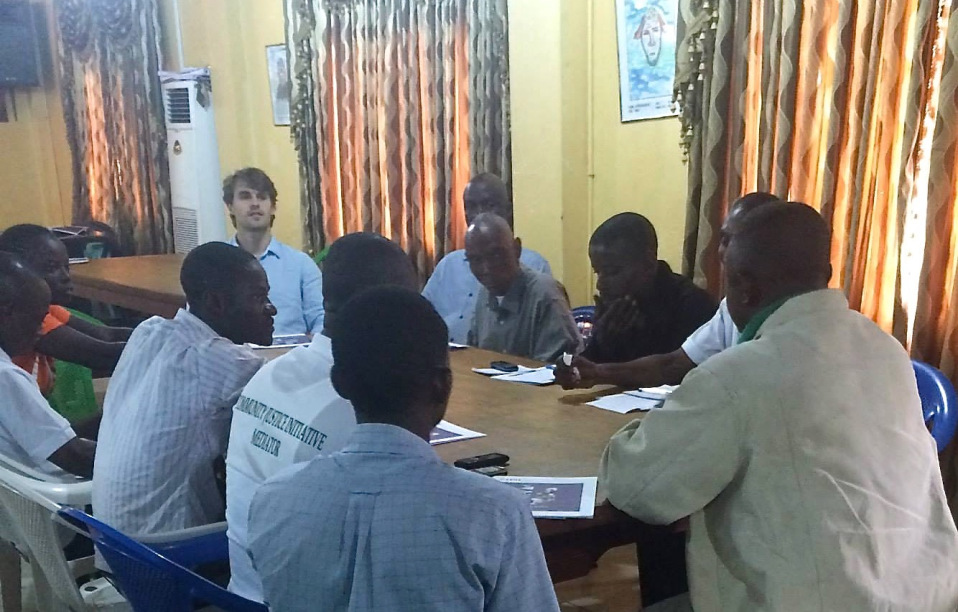NEWS
August 10, 2015

IN BRIEF
By: Brooks Marmon, Accountability Architect for Accountability Lab in Monrovia, Liberia. On August 5, nearly 20 community mediators supported by the Accountability Lab joined representatives from civil society, Liberia’s Ministry of Justice, and the United Nations Mission in Liberia to discuss “Informal Justice Interventions in the Time of Ebola”. The event, convened in partnership with the Hague Institute for Innovating Law (HiiL) with additional support from the Friends of Liberia, served as a dual training and reflection session to chart ways forward on how to meld the best aspects of Liberia’s formal justice system with informal legal procedures to ensure that [...]
SHARE
 By: Brooks Marmon, Accountability Architect for Accountability Lab in Monrovia, Liberia.
By: Brooks Marmon, Accountability Architect for Accountability Lab in Monrovia, Liberia.
On August 5, nearly 20 community mediators supported by the Accountability Lab joined representatives from civil society, Liberia’s Ministry of Justice, and the United Nations Mission in Liberia to discuss “Informal Justice Interventions in the Time of Ebola”. The event, convened in partnership with the Hague Institute for Innovating Law (HiiL) with additional support from the Friends of Liberia, served as a dual training and reflection session to chart ways forward on how to meld the best aspects of Liberia’s formal justice system with informal legal procedures to ensure that all Liberians are able to access justice.
The tone of the daylong event was set by Mark Marvey, legal counsel at Heritage Partners Associates and an advocate with a long history of civil society activism. Speaking on ‘Formal and Informal Law in Liberia’, Marvey underscored the critical need for alternative dispute resolution in Liberia, noting that “the formal system is expensive, slow, and complex.” However, he also observed that traditional justice systems also have issues, particularly in regards to gender equality.
Community Justice Mediators, in collaboration with the government and formal legal agents can play a critical role in harmonizing the two systems. As Marvey observed, resident mediators, will undoubtedly be less susceptible to corrupt influences as they are deeply embedded in the communities in which they work. He challenged those present to reconcile the varying traditions and emerge with a blend that will ensure that Liberians begin to trust the legal structures available to them.
The meeting then broke into two working groups, where mediators- with their colleagues in civil society and government- led a discussion on the challenges they face in conducting their work. A key thread was that in the heat of a conflict, aggrieved parties are reluctant to pursue traditional methods of justice as there is not a feeling that it will result in the levy of an appropriate penalty. The mediators noted that a key challenge in their work was to convey the understanding that in high density communities (the Lab supports mediators in West Point and Logan Town, two high populated communities; and expects to shortly expand to a third community), it is critical for individuals to be able to peacefully resolve conflicts and continue to live together in harmony.
Representatives from HiiL then spoke on their work with innovative justice agents across the world. In India, where it is not uncommon for the resolution of a case to take decades, groups like National Lok Adalat, can play a significant role in reducing the caseload of the formal systems and quickly identify solutions. In Mali, organizations like DemeSo and Wildaf use survey tools to better understand the needs of citizens and to develop programs accordingly. Kenya, known for its high rate of technological penetration, is also leading the way in terms of legal innovation with a SMS platform that answers legal questions.
A working lunch was directed by Reverend Emmanuel Bowier and Ali Sylla of the Center for Counseling and Restorative Dialogue, who have collaborated to provide historical and legal training sessions to encourage religious co-existence amongst Liberian youth. Sylla, a Muslim who has previous experience with the Ministry of Justice, provides legal instruction for young people, while Rev. Bowier, a Christian, offers a historical argument that despite contemporary calls to declare Liberia a Christian state, Islam had a foothold in the country long before Christianity.
The final session of the day examined ways that high impact, low cost community mediation strategies can be sustained. An overarching theme herein was the importance of building relationships with existing local leaders. As a representative from the Ministry of Justice noted, the Ministry has trained young people in the art of mediation, but community members continue to consult the same traditional elders that they always have to resolve their grievances.
The Accountability Lab and the CJTs have been nominated for a range of innovative justice awards (from both HiiL and other organizations). The mediation networks have been the embodiment of a low cost, high impact approach. Operating in an environment of limited infrastructure and against the challenge of the Ebola crisis, the CJTs have made a different in their communities and are poised for continued and greater success.
Stay tuned for the launch of the CJT website in the coming days.
